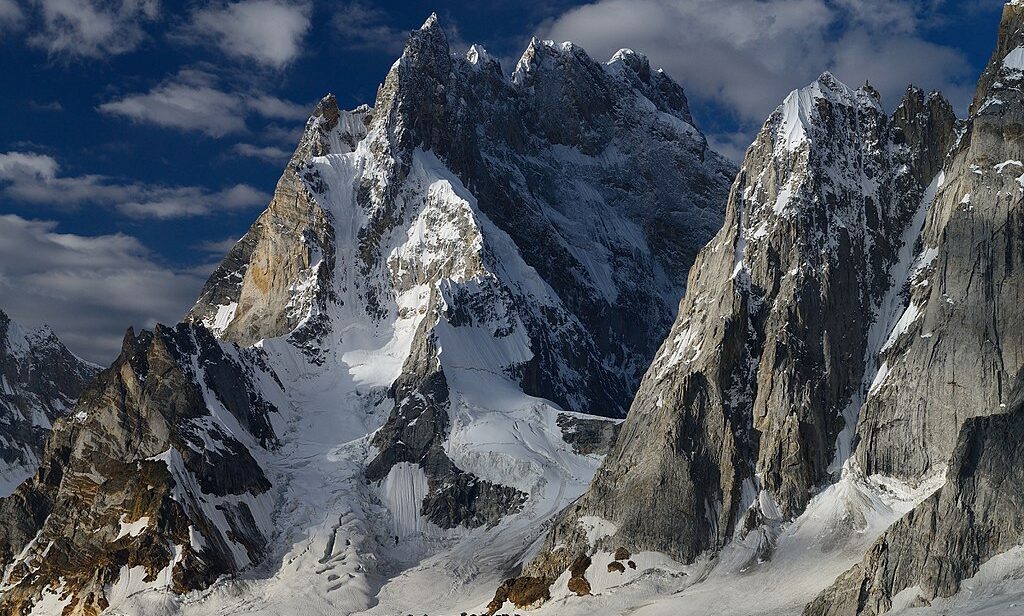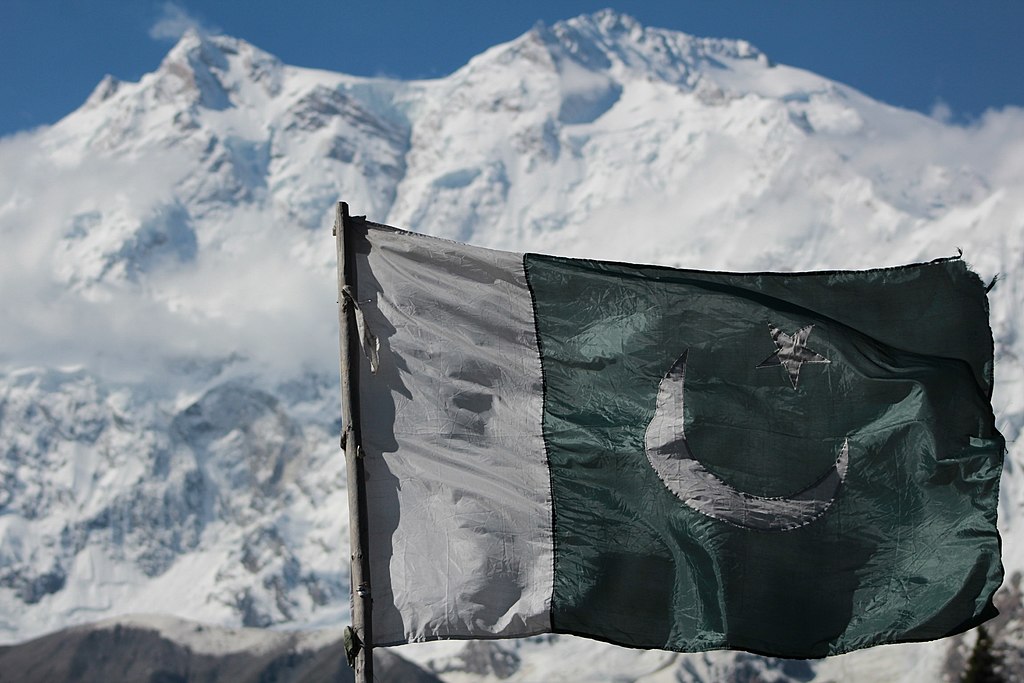
by Muhammad Ahmad Khan, Saniya Khan
Under the Bharatiya Janata Party (BJP), the Indian government and media have noticeably increased discussions of Gilgit Baltistan (GB), a territory in the northwestern part of the disputed erstwhile state of Jammu and Kashmir (J&K). While the question of Kashmir’s status has dominated nationalist rhetoric in both India and Pakistan since Partition, sparked conventional conflict, and increased risk of nuclear escalation, GB has only recently emerged as a central talking point. An analysis of official Indian statements alongside media coverage reveals that the BJP is keeping the question of GB’s constitutional status alive in the policy discourse to fuel populist support. Recent manifestations of this having been the increasingly assertive statements by BJP politicians about reclaiming this territory during the recently-concluded Indian elections. Prime Minister Narendra Modi seems to want his electorate to know that India, under the BJP, has the determination to revive previously neglected territorial claims against Pakistan. The BJP may be leveraging the GB issue for votes but could inadvertently raise domestic expectations of action on this issue, with dangerous consequences for regional stability.
The Debate Over Gilgit Baltistan
Although GB is under Pakistan’s administrative control, its constitutional status remains in limbo because of the 1948 United Nations Security Council (UNSC) resolution calling on the governments of Pakistan and India to hold a plebiscite in the entirety of the J&K region to settle the territorial dispute. Pakistan officially supports this resolution. However, in recent years, it has aimed to grant “provisional provincial status” to GB so as to provide representation and administrative autonomy to the people of the region until the UNSC resolution is implemented.
The rise in the BJP-ruled Indian government’s political rhetoric on GB has occurred in response to these Pakistani efforts, which the Indian leadership perceives as a challenge to its territorial claims. While Pakistani authorities assert that they are looking to centralize control over GB in accordance with the people’s wishes, India looks at these actions as objectionable because it considers the whole of the J&K region, including GB, as its integral part.
The Gilgit Baltistan Empowerment and Self Governance Act of 2009 had provided the region with a local legislative assembly and a Chief Minister, but the Gilgit Baltistan Order 2018 took much of the assembly’s powers away. Instead, to enhance federal control over the region, the 2018 order gave the Prime Minister total executive authority while assigning non-locals to the posts of Police Chief, Chief Secretary, Home Secretary, and Chief Judge with the Supreme Appellate Court of GB. Both Pakistan’s political and diplomatic elite and members of the GB public have since advocated for Pakistan to designate GB as a “provisional” province. “Provisional” provincial status would mean GB could participate in the National Assembly and general elections while Pakistan simultaneously remains committed to an eventual plebiscite. The Imran Khan government had signaled its intent to grant this status to GB, but due to political instability inside the country, it has not been granted until now.
Evolution of Indian Rhetoric on Gilgit Baltistan
From 1947 to the late 2010s, GB was rarely a prominent topic of discussion in Indian political discourse or in the media. Indian scholars have even referred to it as the “forgotten Kashmir.” However, there were sporadic references to it during this time. The back-channel negotiations on Kashmir in the late 1990s and mid-2000s, as well as China’s infrastructure build-up in the area in recent years, led security and intelligence experts to highlight the region. They offered the perspective that GB is a part of Kashmir and, therefore, an integral part of India. Articles also discussed the cultural resemblance between the people of Gilgit Baltistan and Ladakh to reinforce the idea that the region is a natural part of India. An article from 2013 in the Indian Defence Review, a journal whose contributors are mostly former military and intelligence officers, called upon the Indian government to use people in GB as proxies against China’s presence to enhance Indian influence in the region.
After 2013, however, as the BJP returned to power and its brand of nationalism gained popularity, the discourse on GB in India became more assertive. In 2016, Modi made a direct reference to the people of Gilgit Baltistan in his speech on India’s Independence Day, signaling a shift in Indian rhetoric and putting the region in focus. Thereafter, the BJP-ruled government has repeatedly asserted India’s claims on GB, both at a political and diplomatic level. Indian Defense Minister Rajnath Singh said in 2022: “We have just begun our journey of development in Jammu and Kashmir and Ladakh. We will achieve our goal when we reach Gilgit and Baltistan.” Home Minister Amit Shah has asserted in the Indian parliament that “Pakistan-occupied Kashmir is a part of India” and repeatedly said in speeches that “we will take it back,” including Gilgit Baltistan. National Security Advisor Ajit Doval mentioned India’s “106-km-long non-contiguous border with Afghanistan” while speaking to Border Security Force officers, a clear reference to Gilgit Baltistan’s Afghan frontier. Recently, when the U.S. ambassador to Pakistan visited the region, New Delhi protested the visit as being inappropriate because GB is a disputed territory that India claims in its entirety.
While earlier, it was mostly defense experts writing about the issue, the Indian news media also begun to increasingly cover GB during this time and toe the government’s line in its coverage of the issue. For example, in 2006, an article in the Indian Defence Review only focused on drawing cultural affinities between the people of GB and Ladakh. However, in 2016, Sanjeev Tripathi, former head of RAW, wrote the following in The Wire: “Prime Minister Narendra Modi’s move to be more assertive on Pakistan-occupied Kashmir (PoK), including Gilgit-Baltistan, is a significant if belated addition to the Indian diplomatic armory.” From 2013 to 2024, Indian media and think-tanks highlighted social unrest in GB; spotlighted GB being in a constitutional limbo; portrayed the people of GB as wanting to merge with India; and characterized the China-Pakistan Economic Corridor as neglecting the interests of the people of GB. Indian media also covered themes such as GB’s strategic importance to India; human rights in GB; GB as an integral part of India; and Pakistan as an occupying force in GB. In this way, both the BJP’s political discourse as well as the Indian media’s narrative-building have established the idea of GB as a part of India whose people want to be rescued from Pakistan.
The BJP’s strategy behind raking up the GB issue seems to be electoral, particularly as a way to distinguish itself from the Indian National Congress and portray itself as a stronger guarantor of India’s territorial sovereignty. Since the 1990s, the BJP’s campaign messaging has often been anti-Pakistan and anti-Muslim, accruing electoral support for the party, while portraying the Indian National Congress as weak on resolving India’s territorial disputes. Thus, to bolster support amongst its nationalist base, the BJP looks to stir up the GB issue through aggressive rhetoric, with the hope of bringing electoral benefits to the party.
BJP’s Future Gilgit Strategy
Raking up a controversial territorial dispute for electoral benefits is a strategy the BJP has also used elsewhere, such as Modi’s accusation that the Congress gave away the uninhabited Katchatheevu Island to Sri Lanka, an emotive issue in India’s southern state of Tamil Nadu.
But the key question is: is this just the BJP’s short-sighted electoral strategy to use the GB issue for votes? Or is it potentially testing the waters for a policy shift away from the Congress’s moderate approach of resolving the dispute through dialogue with Pakistan towards more assertive action? It appears that the BJP is only using this rhetoric, and potentially influencing the media to generate this discourse, to win the narrative game in domestic politics without concern for the consequences to regional stability. For one, no written party manifesto or official document outlines the BJP’s future approach towards Gilgit Baltistan, suggesting Modi is unlikely to pursue a territorial claim in his third term. Whether the issue is mentioned in the manifesto is significant because the BJP has named all its major flagship policies — the revocation of Article 370, implementation of the Uniform Civil Code, and the Citizenship Amendment Act — in party manifestos during previous elections before completing them. For another, the probability of India attempting to take GB militarily is low. This is because Pakistan’s nuclear weapons serve as a deterrent, and doing so would increase the risk of China becoming involved in order to protect its investments in GB.
Even if the likelihood of India taking military action to occupy GB in the near future is low, other regional players should take note of its assertions about GB. Pakistan does not trust India to adhere to UNSC resolutions after Indian leadership unilaterally revoked Article 370 in Kashmir. By making provocative statements about GB, the BJP seems to have opened another front, making Pakistan uneasy. Besides Pakistan, India has active territorial disputes with China, Sri Lanka, and Nepal. Although these countries barring China have no direct links with GB, they would likely monitor India’s aggressive statements under the BJP on territoriality and sovereignty. Even if these territorial assertions die down after the election, with the Modi-led National Democratic Alliance expected to come to power, the lasting effects of these assertions on the Indian electorate are unlikely to go away. If this issue is kept alive in Indian public discourse and these narratives are used again for electoral politics in the future, the voters are likely to expect action to achieve these objectives, with potentially devastating consequences for regional stability.
SOURCE : southasianvoices

